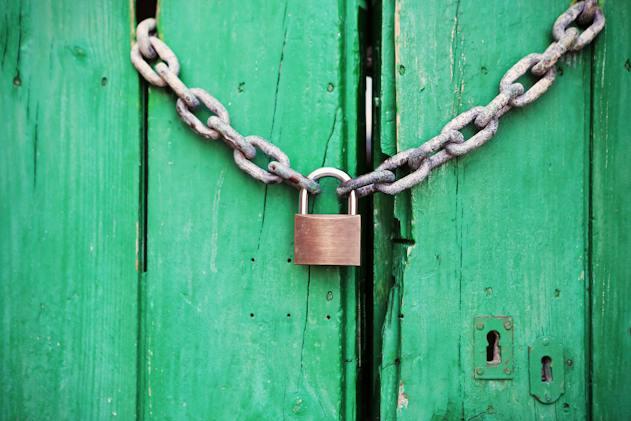No two divorces look the same. Some couples can part amicably, while others have disputes that must be resolved in court.
In Orange County, one of the first decisions a couple must make is whether or not their divorce will be uncontested or contested. Each type of divorce has benefits and challenges, and a couple’s assets and circumstances will determine which is best.
At Pinkham & Associates, we aim to help our clients determine the best course of action for their divorce proceedings. We understand our clients’ needs for discretion and efficiency while choosing the best way to protect their rights and their families.
What Is an Uncontested Divorce?
An uncontested divorce is a divorce in which both spouses agree to the main elements of the divorce. These decisions include:
- Division of debts and property. In an uncosted divorce, the assets are distributed in a way that both parties are agreeable to.
- Custodial rights and parenting plans. Both parents agree on the time they’ll have with their children and how the children will be raised.
- Future financial support (such as alimony or child support). The amounts that one spouse pays to another for child support and alimony are mutually acceptable.
When both parties agree to the same terms for these issues, there are no disputes for a court to resolve. These types of divorce cases are faster and usually cost both parties less money. Even if a divorce is uncontested, most couples still choose to use legal representation to protect their rights and make sure that all the decisions and documents are legally sound and fair.
An uncontested divorce works best when spouses maintain open communication with one another and are willing to compromise.
What Is a Contested Divorce?
A contested divorce arises when the spouses cannot reach an agreement about one or more major issues. Even if a couple agrees on most matters, one disagreement is enough to make the divorce contested.
Contested divorces are more complicated by nature. They may include:
- Multiple court hearings and motions. Motions and hearings will be necessary to discuss the issues that are disputed.
- Formal discovery. Discovery is an important part of the divorce process that requires each side to produce certain documents and records.
- Expert testimony. Expert testimony may include accountants or other appraisers who give their professional opinion about the value of certain assets.
- A trial before a judge. If a settlement cannot be reached, your divorce may go to trial, where a judge will render an opinion about your case.
A contested divorce may take considerably longer and may cost each spouse more. However, a contested divorce proceeding is often necessary to settle disputes in cases of high conflict between spouses.
Key Differences Between Contested and Uncontested Divorces
There are a few key differences between an uncontested and a contested divorce.
- Time. A contested divorce will usually take longer than an uncontested divorce.
- Cost. Due to additional costs for discovery, expert witnesses, motions, and hearings, the cost for a contested divorce is usually higher than an uncontested divorce.
- Stress. Regardless of the type of divorce you have, it will be stressful. High-conflict divorces that involve multiple disputes can be more stressful than uncontested divorces.
- Privacy. A contested divorce may involve public court proceedings, reducing the ability a couple has to keep their affairs private.
Although an uncontested divorce is faster, less expensive, less stressful, and private, it simply is not always an option for every couple.
Which Divorce Is Right for You
The decision between an uncontested and contested divorce depends on your unique situation. There are several factors to consider when deciding which divorce proceeding will work best for you and your spouse.
- Your assets. If you and your spouse have complex assets, it may be best to choose a contested divorce. The more significant the asset, the more opportunity there is for a dispute to arise about its distribution.
- Your kids. Couples with children often find themselves disputing custodial and visitation rights. If one parent, for instance, works long hours and has always relied on the other spouse for childcare, issues can arise as to who should have primary custody or if rights should be shared.
- Level of communication. Spouses who can communicate effectively and compromise are more suited to an uncontested divorce proceeding.
- Trust and transparency. If you suspect your spouse is hiding assets or not being up front with you about any aspect of your separation, a contested divorce will allow you to employ professionals like forensic accountants to uncover assets your spouse could be hiding.
Many high-asset divorces are contested simply because of the myriad of issues that can complicate them. Asset distribution and issues over future child and spousal payments can lead to bitter disagreements that are best handled by a judge.
The Role of a Divorce Attorney
Most couples who enter a contested divorce know they’ll need the guidance of an experienced attorney. It’s important to understand that even couples entering into an uncontested divorce still need legal representation. At Pinkham & Associates, we help our clients:
- Understand California divorce law and requirements
- Properly file all required financial documents and disclosures
- Protect separate property from community property
- Structure the division of assets to ease tax burdens
- Negotiate fair settlements and represent them in court
We are committed to preserving our clients’ rights in both contested and uncontested divorces. We favor practical strategies to help you save time and money and reduce the stress associated with divorce proceedings.
Protecting Your Future Starts Here
No matter where you find yourself in the divorce process, we are here to help. Decisions you face in connection with a divorce can feel overwhelming, but our attorneys are experienced and ready to help you understand the impact of the decisions you make. While both an uncontested and a contested divorce can lead to a resolution, one path may be better for your situation than another.
Contact our office today to learn how we can help. No matter which option fits you best, working with an experienced divorce attorney gives you the knowledge and protection you need.










